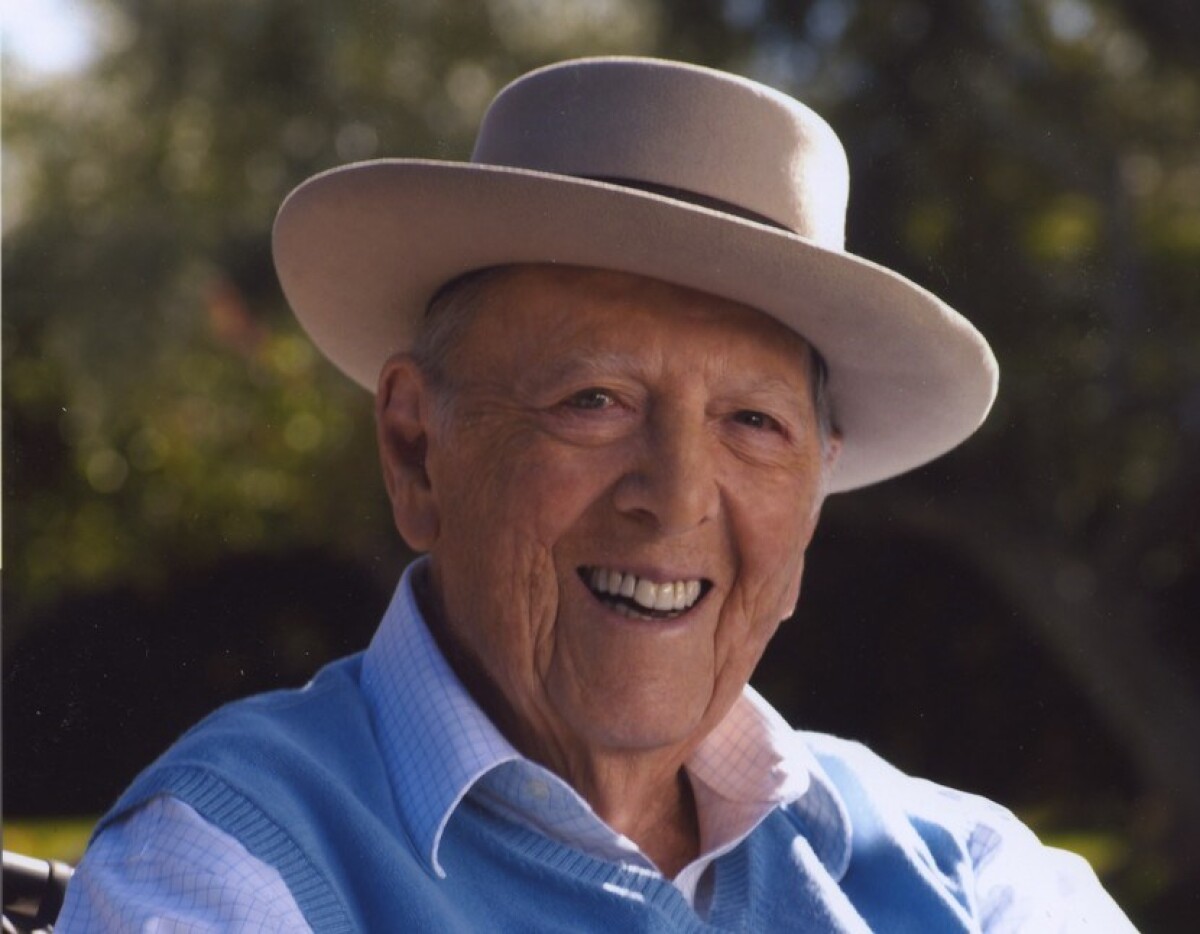Wouk Herman
Herman Wouk (born May 27, 1915) is a Pulitzer Prize-winning American author whose novels include The Caine Mutiny, The Winds of War and War and Remembrance.
Herman Wouk was the son of Esther (née Levine) and Abraham Isaac Wouk. His family was Jewish and had emigrated from Russia. After a childhood and adolescence in the Bronx and a high school diploma from Townsend Harris High School, he earned a B.A. from Columbia University in 1934, where he was a member of the Pi Lambda Phi fraternity and studied under philosopher Irwin Edman. Soon thereafter, he became a radio dramatist, working in David Freedman's "Joke Factory" and later with Fred Allen for five years and then, in 1941, for the United States government, writing radio spots to sell war bonds. He lived a fairly secular lifestyle in his early 20s before deciding in his mid-20s to return to a more traditional Jewish way of life, modeled after that of his grandfather. From that day to the present, Wouk has commenced each day of his life with a reading of scripture in Hebrew.
Wouk joined the United States Navy and served in the Pacific Theater during World War II, an experience he later characterized as educational: "I learned about machinery, I learned how men behaved under pressure, and I learned about Americans." Wouk served as an officer aboard two destroyers minesweepers (DMS), the USS Zane and USS Southard, becoming executive officer of the latter. He started writing a novel, Aurora Dawn, during off-duty hours aboard ship. Wouk sent a copy of the opening chapters to Irwin Edman who quoted a few pages verbatim to a New York editor. The result was a publisher's contract sent to Wouk's ship, then off the coast of Okinawa. The novel was published in 1947 and became a Book of the Month Club main selection. His second novel, City Boy, proved to be a commercial disappointment at the time of its initial publication in 1948; Wouk once claimed it was largely ignored amid the excitement over Norman Mailer's bestselling World War II novel The Naked and the Dead.
While writing his next novel, Wouk read each chapter to his wife as it was completed. At one point she remarked that if they didn't like this one, he'd better take up another line of work (a line he would give to the character of the editor Jeannie Fry in his 1962 novel Youngblood Hawke). The novel, The Caine Mutiny (1951), went on to win the Pulitzer Prize. A huge best-seller, drawing from his wartime experiences aboard minesweepers during World War II, The Caine Mutiny was adapted by the author into a Broadway play called The Caine Mutiny Court Martial and was later made into a film with Humphrey Bogart portraying Lt. Commander Philip Francis Queeg, captain of the fictional USS Caine. Some Navy personnel complained at the time that Wouk had taken every twitch of every commanding officer in the Navy and put them all into one character, but Captain Queeg has endured as one of the great characters in American fiction.
He married Betty Sarah Brown in 1945, with whom he had three sons: Abraham, Nathaniel, and Joseph. He became a full-time writer in 1946 to support his growing family. His first-born son, Abraham Isaac Wouk, died in a tragic accident as a child; Wouk later dedicated War and Remembrance to him with the Biblical words, "He will destroy death forever." He lives in Palm Springs, California; his wife died in that city on March 17, 2011.
His brother Victor Wouk (1919–2005) was an electrical engineer and a pioneer in the development of electric and hybrid vehicles.
Experts have described The Caine Mutiny as one of the best depictions of daily life aboard a US ship during the Second World War.
His novels after The Caine Mutiny include Marjorie Morningstar (1955), Youngblood Hawke (1962), and Don't Stop the Carnival (1965). In 1956 he published in paperback the novel Slattery's Hurricane, which he had written in 1948 as the basis for the screenplay for the film of the same name. Wouk's first work of non-fiction was 1959's This is My God, an explanation of Orthodox Judaism.
In the 1970s, Wouk published his two most ambitious novels, The Winds of War (1971) and its sequel, War and Remembrance (1978). He described the latter, which included a devastating depiction of the Holocaust, as "the main tale I have to tell." Both were in 1983 and 1988 made into hugely popular TV miniseries. Although they were made several years apart, both were directed by Dan Curtis and both starred Robert Mitchum as Captain Victor "Pug" Henry, the main character.
The novels are historical fiction. Henry Kissinger described them at one point as "the war itself." Each has three layers: the story told from the viewpoints of Captain Henry and his circle of family and friends; a more or less straightforward historical account of the events of the war, and an analysis by a member of Hitler's military staff, the insightful fictional General Armin von Roon.
Wouk devoted "thirteen years of extraordinary research and long, arduous composition" to these two novels. "The seriousness with which Wouk has dealt with the war can be seen in the prodigious amount of research, reading, travel and conferring with experts, the evidence for which is to be found in the uncatalogued boxes [of his papers] at Columbia University."
Share:









